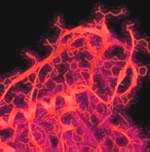AIDS discriminates no races and nationalities
The majority of law-abiding citizens often believe a global AIDS epidemic is unreal

On Monday, the UNAIDS and the World Health Organization published a regular special report UNAIDS/WHO annual AIDS Epidemic Update 2005. In the report, experts have arrived at a rather sad conclusions: even though the epidemic development has been slowed down in some countries, Eastern Europe where Russia also belongs is still one of the unhappiest regions. 
The majority of law-abiding citizens often believe a global AIDS epidemic is unreal. They usually think that millions of people that suffer and die from ordinary diseases because their organisms cannot fight them, live somewhere in Africa or elsewhere.
In Russia, a global AIDS epidemic is no longer unreal for the amount of HIV-positive people has reached one percent of the total number of local population in such cities as Irkutsk, Khanty-Mansiisk, Tolyatti, some places in the Urals and Volga Regions. It means that one individual of one hundred of our relatives and acquaintances may carry the HIV infection.
UNAIDS representative in Russia, Bertil Lindblad, says that this year the spreading of the virus was reduced for the first time in Kenya, Zimbabwe, Haiti and Burkina-Faso. “The result was achieved thanks to prophylaxis programs including behavior changes, using condoms and free-will HIV testing. But in general, the AIDS epidemic has been speedily expanding over Eastern Europe and Central Asia,” he adds.
Eastern Europe and Central Asia are first of all the countries which previously belonged to the socialism camp. It is believed that the AIDS epidemic is gaining force in the region because of lack of finance and political will. Fortunately today this situation seems to be changing for the better.
Head of the Federal AIDS Center, Russian Academy of Sciences Academician, Vadim Pokrovsky, says until recently not more than 3,500 people could have medical treatment allowing them to lead normal lives and be capable of working. Next year, the federal budget for 2006 and the Global Fund to Fight AIDS, Tuberculosis and Malaria appropriate enough finance to guarantee medical treatment to all patients in need.
Much finance is meant for prophylaxis. Fortunately, the AIDS problem has drawn attention of Russian parliamentarians and the president. But people must remember that the state of our health depends upon us in the epoch when AIDS is speedily expanding.
Now, 40 million people in the world are HIV-infected, about five million people got infected this year and over three million of them live in Africa. Three million people died of AIDS within 2005 and half a million of them were children under 15. In Russia, 335,795 of HIV-positive people are officially registered as of the end of the year; 7,952 people have already died of AIDS, the biggest showing since the epidemic broke out.
Discuss this article on Pravda.Ru English FORUM
Subscribe to Pravda.Ru Telegram channel, Facebook, RSS!

